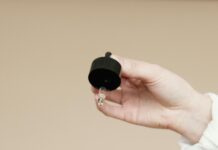Are you curious about the impact of lifestyle on hair restoration success and how simple daily habits can make or break your hair regrowth journey? Many people don’t realize that factors like diet, stress levels, and sleep quality play a crucial role in achieving the best results from hair restoration treatments. But does your everyday routine really affect the outcome? The truth might surprise you! Discover the powerful connection between lifestyle choices and hair transplant effectiveness, and learn why ignoring these aspects could lead to disappointing results. From the role of nutrient-rich foods for hair growth to the influence of smoking and alcohol consumption, we reveal the secrets that experts often overlook. Are you ready to unlock the full potential of your hair restoration efforts? Dive into this guide to understand how optimizing your lifestyle can dramatically improve hair transplant success rates. Don’t miss out on these proven lifestyle tips for hair regrowth that can transform your appearance and confidence. Whether you’re considering a hair transplant or currently undergoing treatment, understanding these vital lifestyle factors will empower you to make smarter choices for long-lasting, natural-looking results. Explore the latest insights and trending strategies that show the undeniable link between your habits and hair restoration outcomes!
How Daily Habits Influence Hair Restoration: 7 Lifestyle Changes That Boost Success
When people think about hair restoration, they mostly picture the surgical procedures or the fancy products. But few realize how much their everyday habits really affect the success of hair restoration. Whether you had a transplant in New York or just started treatment, what you do daily can make or break your results. The impact of lifestyle on hair restoration success is often underestimated, yet it holds powerful influence on how your new hair grows and thrives. Let’s explore 7 lifestyle changes you can adopt that boost your hair restoration journey, making it more effective and long-lasting.
Why Lifestyle Matters for Hair Restoration
Hair restoration isn’t just about the clinic procedure or the medication. Hair follicles need a healthy environment to survive and grow new hair. Things like stress, diet, and sleep patterns all play a role in the quality of hair growth after a transplant or treatment.
Historically, in ancient civilizations like Egypt and India, natural remedies and lifestyle adjustments were first used to promote hair growth. Even though technology advanced a lot, the core principle remains: healthy living supports hair health. If your body is stressed or lacks nutrients, the transplanted hair follicles may not flourish as expected.
7 Lifestyle Changes That Boost Hair Restoration Success
Below is a list of practical lifestyle changes that helps promote better hair growth and improve the outcomes post-restoration:
Balanced Diet Rich in Vitamins and Minerals
Eating a nutrient-dense diet filled with vitamins such as A, C, D, E, and minerals like zinc and iron, helps follicles stay strong. Foods like spinach, nuts, eggs, and fatty fish provide these essential nutrients. Avoid diets that lack protein or have excessive processed foods because they starve your hair of what it need.Regular Exercise to Improve Blood Circulation
Physical activity increases blood flow, including to your scalp. Better circulation delivers more oxygen and nutrients to the hair follicles, enhancing their growth. You don’t need to overdo it; even moderate exercise like walking or yoga can be beneficial.Stress Management Techniques
Chronic stress causes hormone imbalances that can lead to hair shedding or slow growth. Practices like meditation, deep breathing, or hobbies reduce stress levels. It’s important because stress-related hair loss called telogen effluvium can ruin the gains from a hair transplant.Avoid Smoking and Limit Alcohol Intake
Smoking reduces blood flow to the scalp and damages hair follicles, while excessive alcohol consumption depletes your body’s vitamin reserves. Both habits negatively affect hair growth, so quitting smoking and moderating alcohol will help your hair restoration success.Proper Sleep Patterns
During sleep, your body repairs and regenerates cells, including those in your scalp. Poor sleep quality or insufficient sleep disrupts this process and may slow down hair growth. Aim for 7-9 hours of restful sleep every night to support your hair health.Gentle Hair Care Practices
Avoid harsh shampoos, excessive heat styling, or tight hairstyles that pull on your newly transplanted hair. Use mild shampoos and conditioners, and avoid washing hair with extremely hot water. This reduces follicle damage and promotes healthier growth.Follow Post-Operative Instructions Carefully
Your surgeon or hair restoration expert provides specific aftercare instructions. These might include how to wash your hair, medications to use, or when to avoid physical activity. Ignoring these can compromise your results, so follow them strictly.
Comparing Lifestyle Impact: Transplanted Hair vs. Natural Hair
| Aspect | Impact on Transplanted Hair | Impact on Natural Hair |
|---|---|---|
| Nutrient Intake | Crucial for graft survival & growth | Supports overall hair health |
| Stress Levels | Can cause graft shedding | Can cause hair thinning or loss |
| Smoking & Alcohol | Reduces graft blood supply | Damages hair shaft & scalp |
| Sleep Quality | Affects healing & regeneration | Affects hair growth cycle |
| Hair Care Practices | Protects fragile grafts | Maintains hair strength |
Practical Example: A New Yorker’s Hair Restoration Journey
Let’s say John from Brooklyn had a hair transplant last month. If he keeps eating fast food, smokes regularly, and sleeps just 4-5 hours, his scalp won’t get enough nutrients or oxygen. The grafts might not survive well, and he could see poor results. On the other hand, if John changes his diet to include leafy greens, drinks less alcohol, exercises, and sleeps better, he’ll create an environment where transplanted hair follicles can thrive and grow.
The Impact Of Lifestyle On Hair Restoration Success Revealed!
Research studies show that patients who adopt healthier lifestyles after hair restoration surgery have significantly better outcomes. Blood flow, hormone balance, and nutrient availability are major factors influenced by daily habits. Even the best surgical technique can’t guarantee success if the
The Surprising Role of Nutrition in Hair Restoration Outcomes: What to Eat for Healthier Hair
When people think about hair restoration, they often imagine high-tech procedures, pricey treatments, or miracle serums. But what if I tell you that what you eat and how you live plays a much bigger role than you might have thought? Nutrition and lifestyle are like the backstage crew in a play—often unnoticed but absolutely crucial for the show to go well. At our Hair Transplant Clinic in New York, we’ve seen firsthand how patients who pay attention to their diet and daily habits tend to have better results after hair restoration. Let’s dive into the surprising role of nutrition and lifestyle on hair restoration success, and what you should eat for healthier hair.
The Surprising Role of Nutrition in Hair Restoration Outcomes
Hair is made up mostly of a protein called keratin. That means without enough protein in your diet, your hair won’t grow strong or healthy. But protein isn’t the only nutrient important here. Vitamins, minerals, and fats also play significant roles in hair follicle function and scalp health.
Historically, hair loss treatments focused heavily on topical solutions or surgical techniques. However, recent scientific research shows that poor nutrition can slow down the healing process after a hair transplant and even cause the transplanted hair to fall out prematurely.
Some key nutrients important for hair growth are:
- Protein: Eggs, chicken, fish, beans
- Iron: Spinach, red meat, lentils
- Vitamin C: Oranges, strawberries, bell peppers
- Omega-3 fatty acids: Salmon, flaxseeds, walnuts
- Zinc: Pumpkin seeds, nuts, whole grains
- Vitamin A: Carrots, sweet potatoes, kale
- Biotin (Vitamin B7): Almonds, eggs, whole grains
Without these, your hair follicles might become weak or enter a resting phase, which leads to hair thinning or shedding.
What to Eat for Healthier Hair: Practical Tips
Eating a balanced diet is easier said than done, especially when busy life in New York City keeps you on the run. But incorporating these foods can help your hair restoration results:
- Start Your Day With Protein: Scrambled eggs or Greek yogurt with nuts can give your scalp the building blocks it needs.
- Snack on Seeds and Nuts: These are rich in zinc and omega-3 fatty acids.
- Add Leafy Greens to Every Meal: Spinach or kale boost iron and vitamin A intake.
- Eat Fatty Fish Twice a Week: Salmon or mackerel provides essential omega-3 fats.
- Stay Hydrated: Drink plenty of water to keep your scalp hydrated and healthy.
If you struggles with dietary restrictions or preferences, supplements may be an option, but always consult with your doctor before starting any new vitamin regimen.
The Impact of Lifestyle on Hair Restoration Success Revealed!
Nutrition is just one piece of the puzzle. Lifestyle factors also dramatically influence hair restoration outcomes. Stress, smoking, sleep patterns, and physical activity all affect your hair’s ability to grow and thrive.
Stress and Hair Loss
Chronic stress can trigger telogen effluvium, a condition where hair prematurely enters the resting phase and falls out. Stress hormones disrupt the hair growth cycle, making it harder for transplanted hair follicles to establish themselves.
Smoking
Smoking decreases blood flow to the scalp, limiting oxygen and nutrient delivery to hair follicles. This can slow healing after hair transplant surgery and increase hair loss.
Sleep and Hair Growth
Lack of sleep negatively impacts your body’s ability to regenerate cells, including hair follicles. During deep sleep phases, your body produces growth hormone, essential for tissue repair and hair growth.
Physical Activity
Regular exercise improves circulation, which means more nutrients reach your scalp. However, excessive sweating without proper scalp hygiene can lead to scalp infections, affecting hair growth.
Lifestyle Factors vs Nutrition: A Quick Comparison
| Factor | Impact on Hair Restoration | Practical Advice |
|---|---|---|
| Nutrition | Provides building blocks for hair growth | Eat protein-rich and nutrient-dense foods |
| Stress | Can cause hair shedding and delayed healing | Practice meditation or stress-relief |
| Smoking | Reduces scalp blood flow and oxygen supply | Quit smoking or reduce consumption |
| Sleep | Supports cell regeneration and hormone release | Aim for 7-9 hours of quality sleep |
| Physical Activity | Enhances circulation but hygiene is key | Exercise regularly, clean scalp after |
Real-Life Example: Sarah’s Story
Sarah, a 35-year-old New Yorker, came to our clinic after noticing thinning hair for years. She underwent a hair transplant but was frustrated when her results didn’t show as quickly as she hoped. After a detailed consultation, we discovered her diet was lacking iron and vitamin C, and she was under a lot of work-related stress.
By adjusting her meals to include more leafy
Stress and Hair Loss: Can Managing Anxiety Improve Hair Transplant Results?
Stress and hair loss, is it really connected? Many people in New York and beyond, struggling with hair thinning or balding, wonders if managing their anxiety could improve the results of a hair transplant. Hair restoration is not just about the surgery itself, there are many factors play a role in how successful the outcome will be. Lifestyle choices and mental well-being often gets overlooked but they can have a big impact, too. Let’s explore how stress, anxiety, and daily habits influence hair transplant effectiveness and what you can do to boost your hair restoration journey.
Stress and Hair Loss: What’s the Connection?
Stress has been linked to hair loss for decades, but it’s not always clear how. When a person is under chronic stress, the body produces hormones like cortisol that can disrupt the normal hair growth cycle. Normally, hair follicles go through growth (anagen), transition (catagen), and resting (telogen) phases. Excessive stress can push more hairs into the telogen phase, leading to telogen effluvium — a condition where hair falls out more than usual.
Historical studies have shown that after traumatic events or severe stress, many individuals experience noticeable hair shedding a few months later. This kind of hair loss is usually temporary but can be distressing.
Can Managing Anxiety Improve Hair Transplant Results?
Hair transplant surgeries involve relocating healthy hair follicles from donor areas to balding or thinning spots. The success of these transplanted follicles depends on factors like blood circulation, scalp health, and immune response. Anxiety and stress influence these factors negatively:
- High stress levels decrease blood flow to the scalp, affecting follicle nourishment.
- Stress triggers inflammation in the body, which can harm hair follicles.
- Anxiety can weaken immune system, increasing risk of infections post-surgery.
Because of these, managing anxiety before and after the procedure may improve healing times and hair follicle survival rates. Relaxation techniques like meditation, yoga, or counseling could be beneficial.
The Impact of Lifestyle on Hair Restoration Success Revealed!
It’s not just stress, lifestyle habits have a big say in how well hair transplants work. Here is a list of key lifestyle factors that influence hair restoration outcomes:
Nutrition
Eating a balanced diet rich in vitamins and minerals supports hair growth. Deficiency in iron, vitamin D, or proteins can slow down new hair growth and affect healing.Sleep Quality
Poor sleep disrupts hormone regulation and tissue repair, both necessary for transplanted follicles to thrive.Smoking
Smoking reduces blood flow and oxygen to the scalp, impairing healing and follicle survival.Alcohol Consumption
Excessive alcohol can lead to dehydration and nutrient depletion, which impacts hair health.Exercise
Moderate physical activity improves circulation, including to the scalp, promoting healthier hair follicles.Hair Care Routine
Using harsh chemicals or aggressive styling can damage new hair and scalp. Gentle care is important.
Comparing Stress-Related Hair Loss with Genetic Hair Loss
People often confuse stress-related hair loss with androgenetic alopecia (pattern baldness). Here’s a quick comparison:
| Aspect | Stress-Related Hair Loss | Genetic Hair Loss (Androgenetic Alopecia) |
|---|---|---|
| Cause | Physical or emotional stress | Genetic predisposition |
| Onset | Sudden, after stressful events | Gradual, over years |
| Pattern | Diffuse thinning all over the scalp | Receding hairline or crown thinning |
| Duration | Usually temporary | Permanent without treatment |
| Treatment Response | Hair regrows with stress control | Requires medical or surgical treatment |
Understanding this helps in deciding if a hair transplant is right or if managing lifestyle and stress first might solve the problem.
Practical Tips to Improve Hair Transplant Success by Managing Lifestyle
If you planning a hair transplant in New York or have recently undergone one, here’s some practical advice to support your hair restoration:
- Prioritize Stress Management: Practice deep breathing exercises daily or try mindfulness apps.
- Eat Hair-Friendly Foods: Incorporate leafy greens, nuts, fish, and eggs for essential nutrients.
- Stay Hydrated: Drinking plenty of water helps scalp hydration.
- Quit Smoking: Even cutting down smoking can improve scalp health.
- Limit Alcohol: Try to reduce alcohol intake especially during recovery.
- Get Enough Sleep: Aim for 7-8 hours per night to allow body repair.
- Avoid Tight Hairstyles: Loose styles prevent unnecessary pulling on new grafts.
- Follow Post-Op Instructions: Adhere strictly to your surgeon’s care guidelines.
Historical Context: Hair Restoration and Lifestyle Awareness
Hair transplantation began gaining popularity in the 1950s, with early techniques using punch grafts. Since then, methods evolved to follicular unit transplantation (
Sleep Patterns and Hair Regrowth: Unlocking the Secret Connection for Faster Recovery
Sleep Patterns and Hair Regrowth: Unlocking the Secret Connection for Faster Recovery
When people think about hair transplant success, mostly they focus on the surgical technique, the surgeon’s skill, or even the type of hair transplant method used. But what about something less obvious—like sleep patterns? It might sound strange, but your sleeping habits could play a big role in how your hair regrows after a transplant. Also, lifestyle choices overall can seriously impact the success of hair restoration, from diet to stress levels. Here in New York, where the hustle never stops, understanding these factors could make the difference between slow recovery and seeing your new hair flourish.
Why Sleep Matters for Hair Regrowth
Sleep is when the body repair itself. During deep sleep phases, a hormone called melatonin is released, which not only regulate your sleep-wake cycle but also acts as a powerful antioxidant. This helps reduce inflammation and promote healing in tissues—including your scalp after a hair transplant.
- Hair follicles are very sensitive to stress and inflammation.
- Good sleep helps lower cortisol, the stress hormone, which otherwise can disrupt hair growth cycles.
- Growth hormone, essential for cell regeneration and tissue repair, peaks during deep sleep.
Historically, many traditional medicine systems emphasized rest for healing. Ancient Greek physicians, for example, recommended sleep for various ailments, noticing better recovery in patients who rested well. Modern science now backs up this idea with studies showing that poor sleep quality can lead to slower wound healing and even hair loss.
The Impact Of Lifestyle On Hair Restoration Success Revealed!
Lifestyle choices aren’t just about what you eat or how much you exercise. They include habits like smoking, alcohol consumption, stress management, and even your daily routine. All these factors can influence how well your transplanted hair follicles survive and thrive.
Here’s a quick list of lifestyle factors impacting hair restoration:
- Nutrition: Protein, iron, zinc, and vitamins A, C, D, and E support hair follicle health.
- Stress Levels: Chronic stress triggers hair shedding (telogen effluvium) and hinders regrowth.
- Exercise: Moderate exercise improves blood circulation, delivering nutrients to the scalp.
- Smoking: Reduces blood flow, increases toxins, and slows healing.
- Alcohol: Excessive drinking depletes nutrients and dehydrates hair follicles.
- Sleep Patterns: As discussed, poor sleep leads to inflammation and reduced growth hormones.
Practical Examples of Lifestyle Effects Post-Transplant
Imagine two patients who had the same hair transplant procedure. Patient A maintains a balanced diet, sleeps 7–8 hours nightly, avoids smoking, and manages stress through yoga or meditation. Patient B smokes, drinks heavily, sleeps only 4–5 hours, and works long hours under high stress.
Chances are, Patient A will see faster hair regrowth, fewer complications, and better overall results. Patient B might experience slower recovery, more shedding, and even risk of transplant failure.
Comparison Table: Lifestyle Habits and Their Effects on Hair Transplant Recovery
| Lifestyle Habit | Positive Impact on Hair Regrowth | Negative Impact on Hair Regrowth |
|---|---|---|
| Sleep | Boosts growth hormone, reduces stress | Increases inflammation, slows healing |
| Nutrition | Provides essential nutrients | Deficiency causes weak follicles |
| Stress | Low stress promotes healthy growth | High stress causes hair shedding |
| Exercise | Enhances blood circulation | Over-exercising may increase stress |
| Smoking | N/A | Restricts blood flow, toxins damage |
| Alcohol | Moderate intake has minimal effect | Excess leads to dehydration, nutrient loss |
How to Improve Sleep Patterns for Better Hair Regrowth
Improving sleep quality is not always easy, especially in a city like New York. But here are some practical tips that might help you unlock better recovery speed:
- Stick to a consistent bedtime and wake-up time, even on weekends.
- Avoid caffeine and heavy meals 3–4 hours before sleep.
- Create a relaxing pre-sleep routine: reading, warm bath, or meditation.
- Limit screen time at least an hour before bed to reduce blue light exposure.
- Keep your bedroom cool, dark, and quiet.
- Consider natural supplements like melatonin only after consulting with your doctor.
The Bigger Picture: Lifestyle Changes Beyond Sleep
While sleep is crucial, hair transplant success depends on the whole lifestyle picture. You might want to think about:
- Balanced Diet Plans: Incorporate lean proteins, leafy greens, nuts, and fruits.
- Stress Reduction Techniques: Breathing exercises, mindfulness, and regular breaks work wonders.
- Avoiding Harmful Substances: Quit smoking and limit alcohol intake.
- Hydration: Drink plenty of water daily for scalp and hair follicle hydration.
- Follow Post-Operative Care Instructions:
Exercise and Hair Health: Top Fitness Tips to Enhance Your Hair Restoration Journey
Exercise and Hair Health: Top Fitness Tips to Enhance Your Hair Restoration Journey
Many people nowadays looking for ways to restore their hair, whether it’s through surgical hair transplant or non-surgical methods. But what people often forget that hair restoration success doesn’t just depend on the procedure itself, but your lifestyle habits too. Exercise, nutrition, stress levels – they all have a role in how well your hair recovers and grows back. If you live in New York and considering a hair transplant clinic, understanding the impact of lifestyle on hair restoration success is a game changer.
Why Lifestyle Matter for Hair Restoration?
Hair restoration is not just about implanting follicles. The health of your scalp, blood circulation, and hormone balance influence whether those follicles will thrive or fail. Lifestyle choices such as diet, exercise, smoking, and stress management influence these factors heavily. For example, poor diet can starve hair follicles of essential nutrients, while chronic stress can trigger hair loss conditions like telogen effluvium.
Historically, people has known that general health affects hair condition. Ancient civilizations used herbs and massages to stimulate scalp health. Today, modern science backs up the idea that a holistic approach including fitness and diet helps maintain hair growth after transplant surgery.
How Exercise Benefits Hair Health
Exercise increase blood flow throughout the body, including the scalp. This improve delivery of oxygen and nutrients to hair follicles, promoting stronger and healthier hair growth. Regular physical activity also helps regulate hormones that can cause hair loss such as dihydrotestosterone (DHT) when imbalanced.
Some specific benefits of exercise on hair health include:
- Reduces stress by releasing endorphins, lowering cortisol which is linked to hair loss
- Improves sleep quality, supporting hair follicle repair cycles
- Encourages detoxification through sweat, removing toxins that may impair hair growth
- Enhances immune system, reducing inflammation that can damage hair follicles
Top Fitness Tips to Support Your Hair Restoration
If you just had a hair transplant or you’re planning one soon, here are some fitness tips to enhance your results:
- Start slow post-surgery: Avoid vigorous workouts for at least 7-10 days after the procedure to prevent sweating and irritation on the scalp.
- Incorporate cardio: Activities like walking, cycling, or swimming improve circulation without stressing the scalp.
- Try yoga or meditation: These reduce stress and improve blood flow, both beneficial for hair growth.
- Strength training: Moderate weight lifting can balance hormone levels but avoid extreme sessions that increase cortisol.
- Stay hydrated: Drinking enough water helps maintain scalp moisture and follicle health.
- Avoid hot showers immediately after exercise: Hot water can dry out the scalp and damage new grafts.
- Wear breathable headgear if exercising outdoors to protect scalp from sun damage.
The Impact of Diet and Nutrition on Hair Restoration
Exercise alone is not enough if your diet lacks essential nutrients. Hair follicles need things like protein, iron, zinc, and vitamins A, C, D, and E to grow properly. A deficiency in any of these can slow down or stop hair regrowth after transplant.
Here’s a simple comparison of nutrients important for hair with their food sources:
| Nutrient | Food Sources |
|---|---|
| Protein | Eggs, chicken, fish, legumes |
| Iron | Spinach, red meat, lentils |
| Zinc | Nuts, seeds, shellfish |
| Vitamin A | Carrots, sweet potatoes |
| Vitamin C | Citrus fruits, strawberries |
| Vitamin D | Fatty fish, fortified milk |
| Vitamin E | Almonds, sunflower seeds |
How Smoking and Alcohol Affect Hair Restoration Outcomes
Smoking reduces blood flow and oxygen supply to hair follicles, impairing growth. It also increase free radicals that damage cells including follicle cells. Alcohol, especially in excess, can dehydrate the body and cause nutrient deficiencies, both harmful to hair restoration.
If you want to maximize your hair transplant success, cutting down or quitting smoking and limiting alcohol is highly recommended.
Stress: The Silent Enemy of Hair Growth
One of the most overlooked factors is stress. Chronic stress disrupts hormone balance and induces hair loss conditions. Exercise help combat stress, but combining with techniques like mindfulness, adequate sleep, and social support is crucial.
Practical Example: A Week Plan for Hair Health and Fitness
| Day | Activity | Notes |
|---|---|---|
| Monday | 30-minute brisk walk | Improves circulation without strain |
| Tuesday | Yoga + meditation (20 min) | Reduces stress and promotes scalp health |
| Wednesday | Strength training (moderate) | Hormonal balance support |
| Thursday | Rest or light stretching | Avoid overexertion |
| Friday | Swimming or cycling | Cardio benefits, low impact |
| Saturday | Mindfulness practice + hydration focus | Stress relief and nutrient support |
| Sunday | Rest day | Recovery and |
Conclusion
In conclusion, the success of hair restoration is significantly influenced by various lifestyle factors, including diet, stress management, sleep quality, and overall health habits. A balanced diet rich in vitamins and minerals supports hair follicle strength, while reducing stress and ensuring adequate rest promote optimal scalp conditions for hair growth. Avoiding harmful habits like smoking and excessive alcohol consumption also plays a crucial role in enhancing treatment outcomes. By adopting a holistic approach that prioritizes healthy living alongside medical interventions, individuals can maximize the effectiveness of hair restoration procedures and maintain long-lasting, natural results. Ultimately, investing in a healthier lifestyle not only benefits your hair but also contributes to your overall well-being. If you’re considering hair restoration, take proactive steps today to improve your daily habits and set the foundation for successful and enduring hair regrowth.












